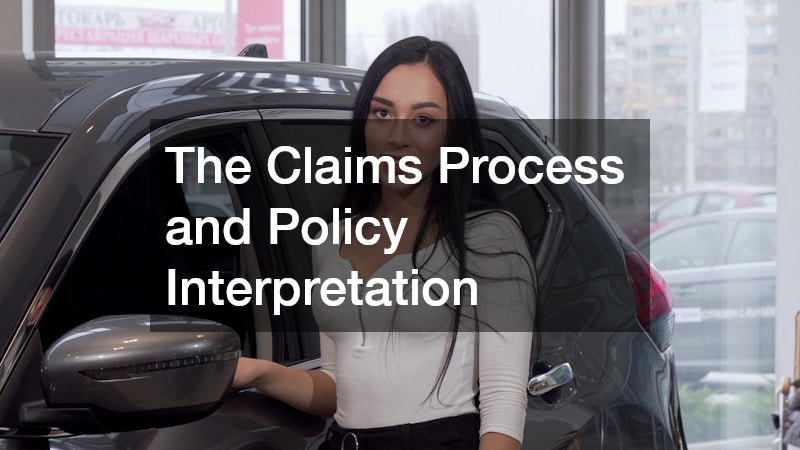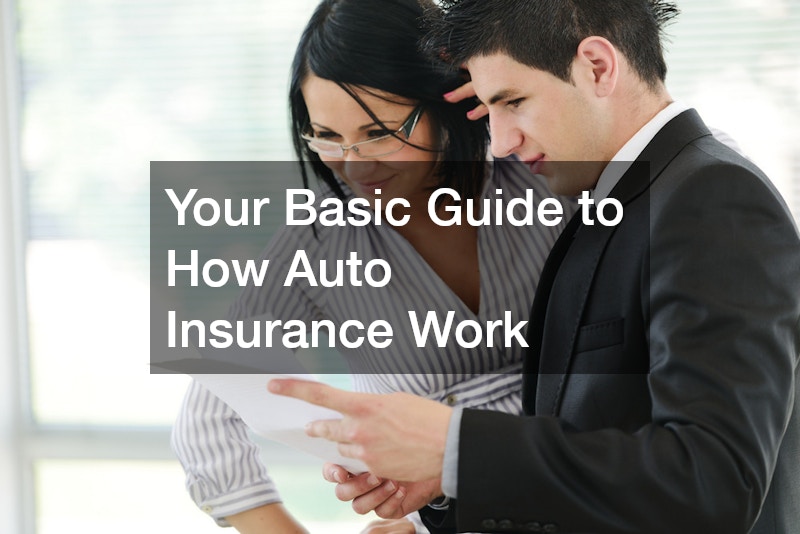
Auto insurance is a contractual agreement between you and an insurance company that safeguards you from financial loss in the event of an accident or theft. The policy you purchase specifies which events are covered and the amount to be compensated. Different policies offer varying degrees of coverage depending on the premium paid, meaning a higher premium generally yields more comprehensive protection.
The basic components of any auto insurance policy include liability coverage, collision coverage, comprehensive coverage, uninsured/underinsured motorist coverage, and personal injury protection. Liability coverage is legally required in most places and covers damages to others for which you are held responsible.
Collision and comprehensive coverages, though not mandatory, offer additional safety nets by covering your vehicle in case of accidents and non-collision-related incidents, respectively.
Navigating through the multitude of options in auto insurance can often appear daunting. However, understanding these core principles can ease the selection process, ensuring that you secure a policy fitting your needs. It is crucial to assess your current situation, including evaluating the state of your vehicle and driving habits, to determine the most suitable coverage for you. Consulting with commercial insurance agencies can also provide valuable insights into which policies are best aligned with your requirements.
The Claims Process and Policy Interpretation

Once an unfortunate event occurs, the process of filing an insurance claim comes into play. The first crucial step involves reporting the incident to the insurance company immediately. Providing accurate and comprehensive information at this stage is critical as it sets the tone for how smoothly the claim will progress.
Insurance companies assign claim adjusters to assess the situation, verify details, and determine the extent of the insurance coverage applicable in the given scenario. The outcome of this evaluation shapes the compensation you receive. While waiting for the claims process to unfold can be nerve-wracking for many policyholders, maintaining transparency and cooperativeness at every step eases the process significantly.
Understanding the terms of your policy is vital to ensure you receive what you are entitled to. Each policy contains specific conditions and exclusions that can drastically impact your compensation. Before purchasing any insurance, make it a priority to thoroughly read and interpret the policy documents or seek the guidance of professionals to clarify confusing clauses.
Comparing Auto Insurance Options
Selecting the right auto insurance policy depends heavily on comparing available options. Insurance companies offer diverse plans tailored to different needs and budgets. Researching and comparing these offers can lead to substantial savings while ensuring sufficient coverage.
Looking past just the premium amounts, consider factors such as the company’s customer service, claim settlement speed, and policy terms. Reading reviews and seeking recommendations from peers can provide insights into these critical elements. Habitually, many clients quickly settle for cheaper premiums without probing deeper into how such options truly measure up against more costly but potentially more beneficial policies.
The role of commercial insurance agencies becomes profound here, offering expertise that simplifies much of the comparative process. These agencies understand the nuances of differing policies and can objectively present the pros and cons to prospective clients. Autopiloting through insurance choices without assistance may not be financially wise, especially for individuals less familiar with the insurance industry undertones.
The Importance of Reviewing and Updating Your Policy
Life changes can render your existing auto insurance policy insufficient if not regularly reviewed. Changes such as acquiring new vehicles, changes in your household demographics, or even shifts in lifestyle can necessitate policy modifications. Reviewing your insurance regularly ensures that your current policy aligns with your evolving needs.
Updating your insurance policy isn’t merely about adding more coverage but also about optimizing your existing terms for cost and efficiency. The insurance market is frequently dynamic, introducing updates and options that you might find attractive. Remaining engaged and informed about such changes empowers you to make educated decisions.
Moreover, neglecting to adjust your policy could result in substantial financial repercussions in the long run. Continuous collaboration with commercial insurance agencies ensures that your policy is up-to-date and that you are aware of all available enhancements. It is all about crafting an insurance portfolio that adequately manages financial risk while providing peace of mind.
Tips for Lowering Your Auto Insurance Premiums
While securing comprehensive coverage is essential, many drivers also look for ways to manage costs without sacrificing protection. Understanding how premiums are calculated and taking proactive steps can help reduce expenses.
One effective strategy is maintaining a clean driving record. Insurance companies typically reward safe driving habits with lower rates, as fewer violations or accidents indicate lower risk. Additionally, bundling multiple policies—such as auto, home, or renters insurance—with the same provider often results in discounts.
Another consideration is adjusting your deductible. Opting for a higher deductible can lower your monthly premium, though it means you’ll pay more out of pocket in the event of a claim. Similarly, reviewing your coverage levels periodically can identify redundant or unnecessary protections that could be trimmed without compromising essential safeguards.
Many insurers also offer discounts for features such as anti-theft devices, safety technologies, or even completing defensive driving courses. Consulting with a commercial insurance agency can help identify all available discounts and strategies to optimize your policy cost-effectively.
By combining careful policy selection, diligent driving habits, and strategic adjustments, you can maintain strong coverage while keeping your auto insurance premiums manageable.



